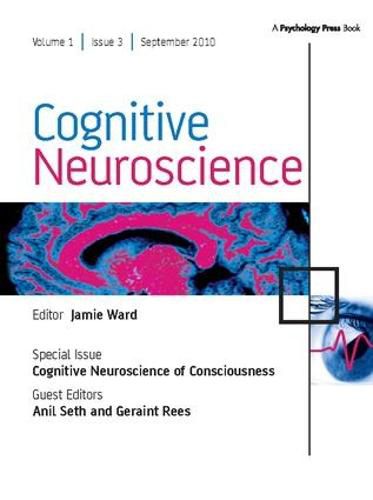Readings Newsletter
Become a Readings Member to make your shopping experience even easier.
Sign in or sign up for free!
You’re not far away from qualifying for FREE standard shipping within Australia
You’ve qualified for FREE standard shipping within Australia
The cart is loading…






How do conscious experience, subjectivity, and free will arise from the brain and the body? Even in the late 20th century, consciousness was considered to be beyond the reach of science. Now, understanding the neural mechanisms underlying consciousness is recognized as a key objective for 21st century science. The cognitive neuroscience of consciousness is a fundamentally multidisciplinary enterprise, involving powerful new combinations of functional brain imaging, computational modelling, theoretical innovation, and basic neurobiology. Its progress will be marked by new insights not only into the complex brain mechanisms underlying consciousness, but also by novel clinical approaches to a wide range of neurological and psychiatric disorders.
These innovations are well represented by the contents of the present volume. A target article by Victor Lamme puts forward the contentious position that neural evidence should trump evidence from behaviour and introspection, in any theory of consciousness. This article and its several commentaries advance one of the fundamental debates in consciousness science, namely whether there exists non-reportable phenomenal consciousness, perhaps dependent on local rather than global neural processes. Other articles explore the wider terrain of the new science of consciousness. For example, Maniscalco and colleagues use theta-burst transcranial magnetic stimulation to selectively impair metacognitive awareness; Massimini and coworkers examine changes in functional connectivity during anesthesi, and Vanhaudenhuyse et al describe innovations in detecting residual awareness following traumatic brain injury.
Together, then contents of this volume exemplify the “grand challenge of consciousness’ in combining transformative questions about the human condition with a tractable programme of experimental and theoretical research.
$9.00 standard shipping within Australia
FREE standard shipping within Australia for orders over $100.00
Express & International shipping calculated at checkout
How do conscious experience, subjectivity, and free will arise from the brain and the body? Even in the late 20th century, consciousness was considered to be beyond the reach of science. Now, understanding the neural mechanisms underlying consciousness is recognized as a key objective for 21st century science. The cognitive neuroscience of consciousness is a fundamentally multidisciplinary enterprise, involving powerful new combinations of functional brain imaging, computational modelling, theoretical innovation, and basic neurobiology. Its progress will be marked by new insights not only into the complex brain mechanisms underlying consciousness, but also by novel clinical approaches to a wide range of neurological and psychiatric disorders.
These innovations are well represented by the contents of the present volume. A target article by Victor Lamme puts forward the contentious position that neural evidence should trump evidence from behaviour and introspection, in any theory of consciousness. This article and its several commentaries advance one of the fundamental debates in consciousness science, namely whether there exists non-reportable phenomenal consciousness, perhaps dependent on local rather than global neural processes. Other articles explore the wider terrain of the new science of consciousness. For example, Maniscalco and colleagues use theta-burst transcranial magnetic stimulation to selectively impair metacognitive awareness; Massimini and coworkers examine changes in functional connectivity during anesthesi, and Vanhaudenhuyse et al describe innovations in detecting residual awareness following traumatic brain injury.
Together, then contents of this volume exemplify the “grand challenge of consciousness’ in combining transformative questions about the human condition with a tractable programme of experimental and theoretical research.